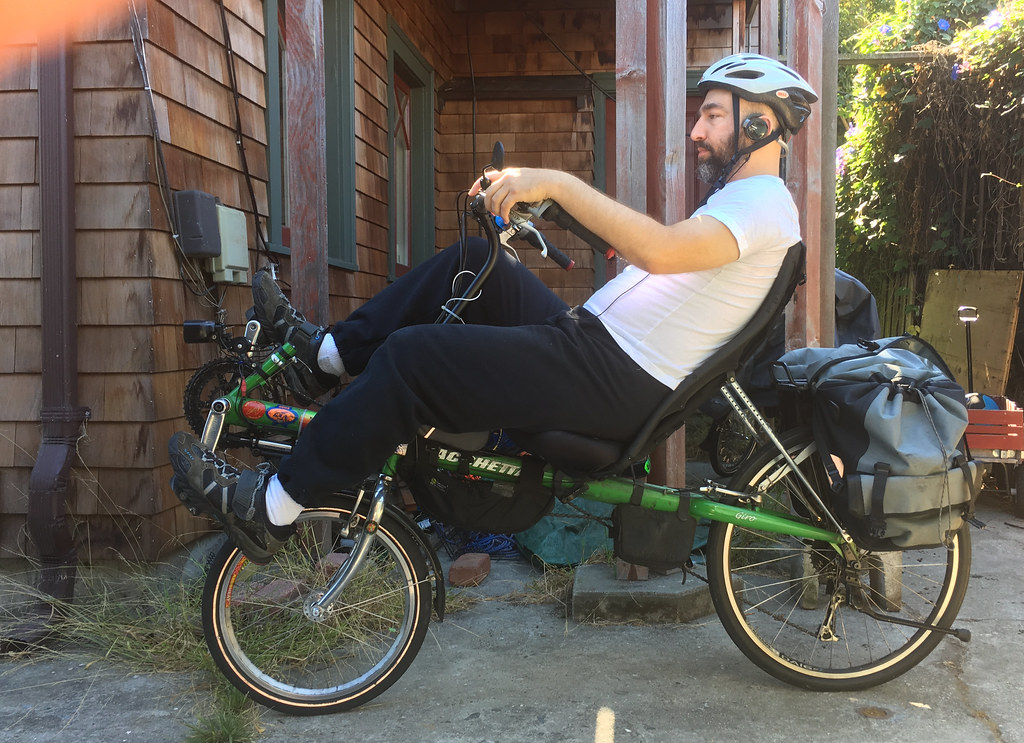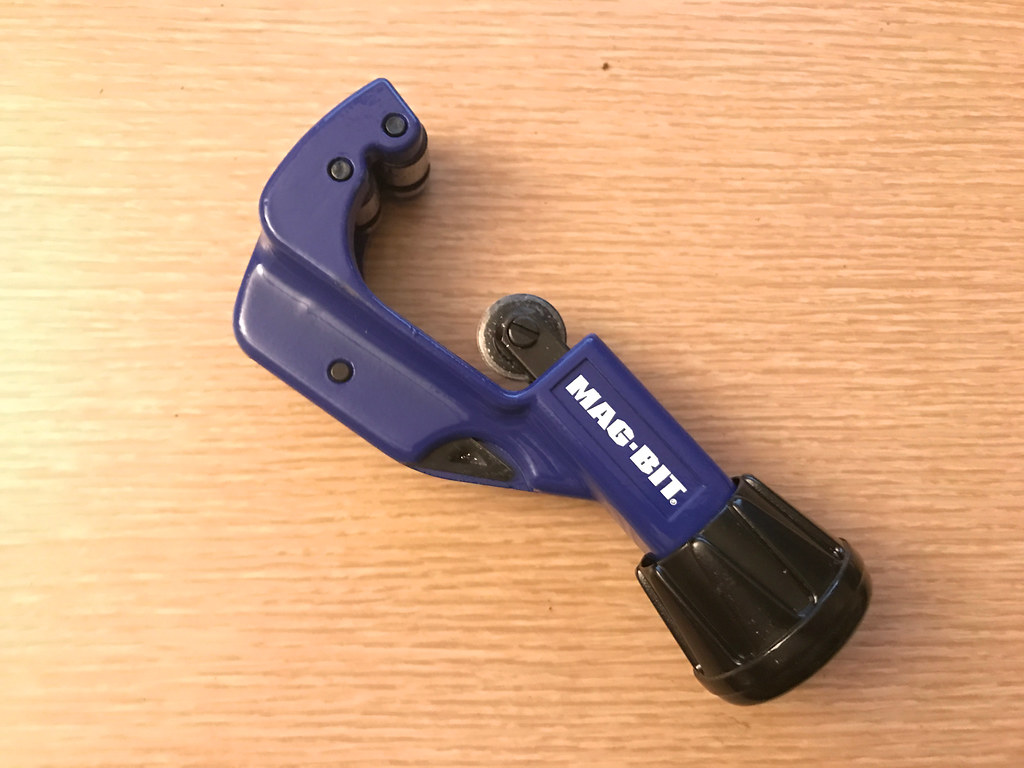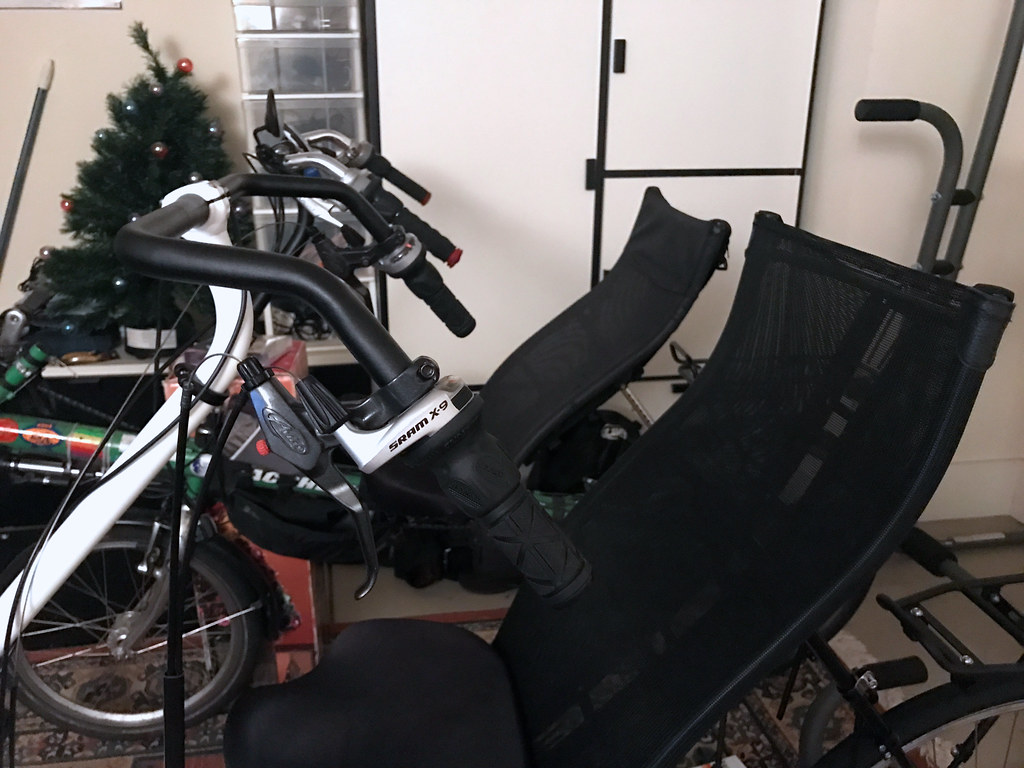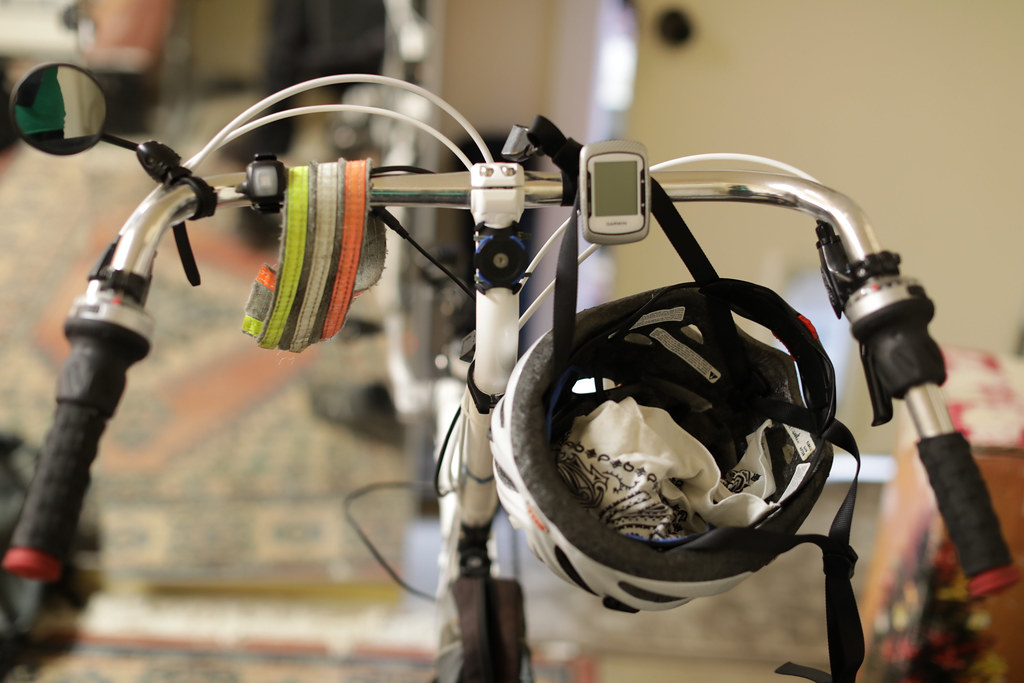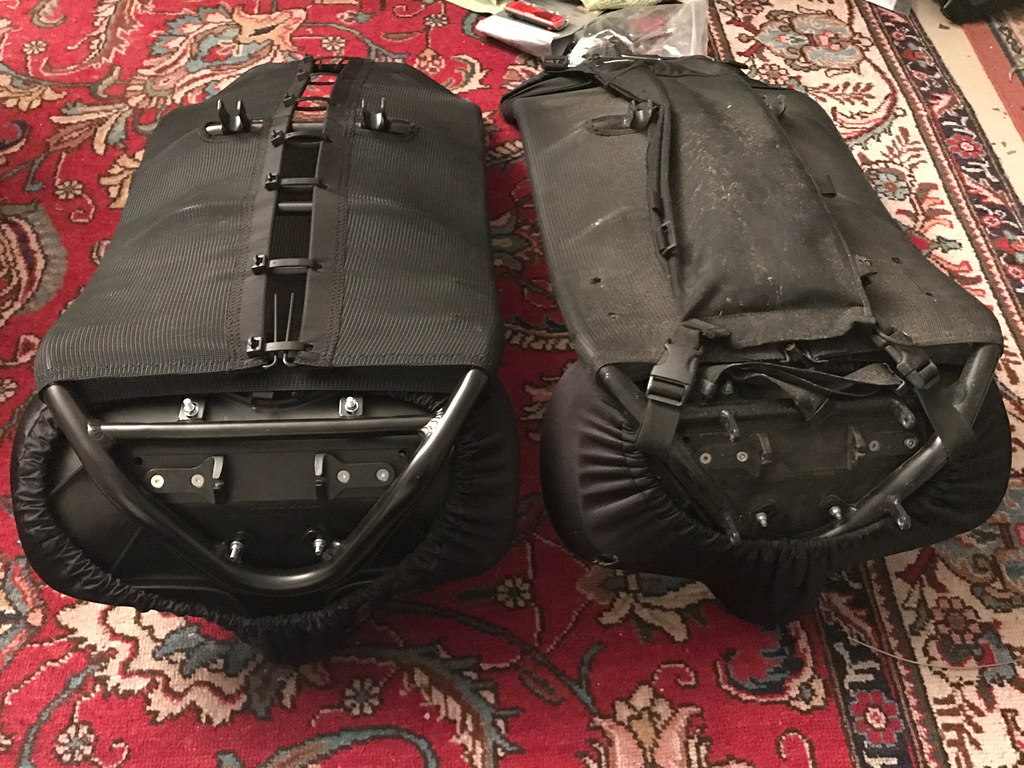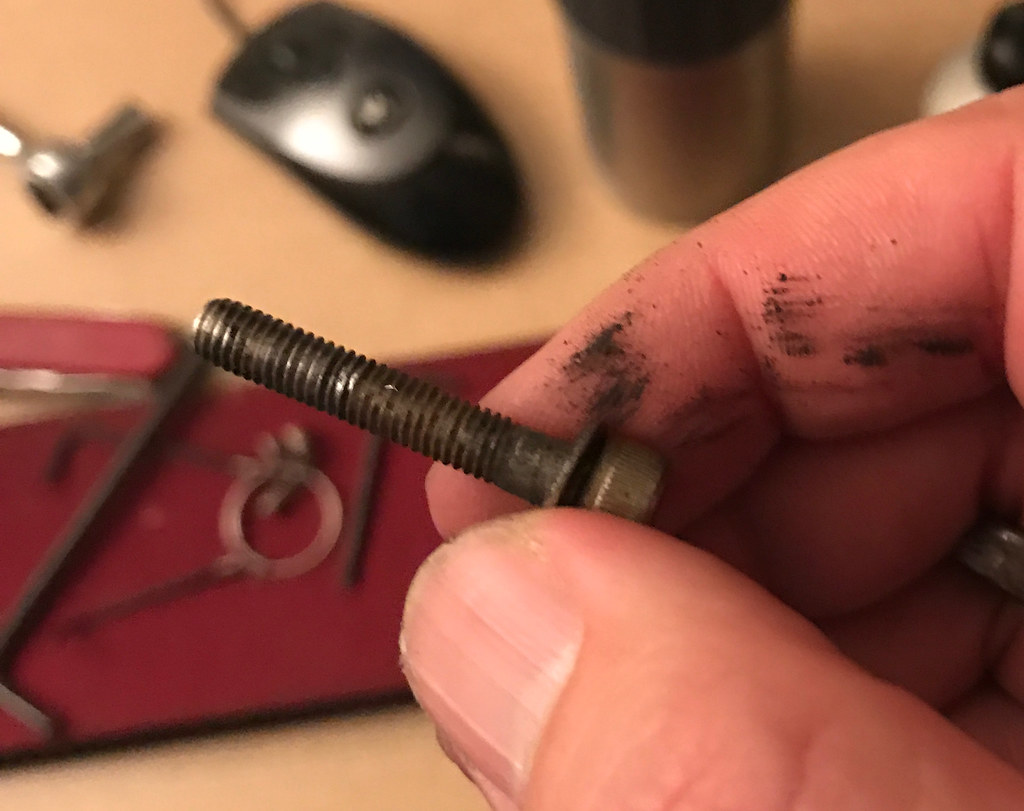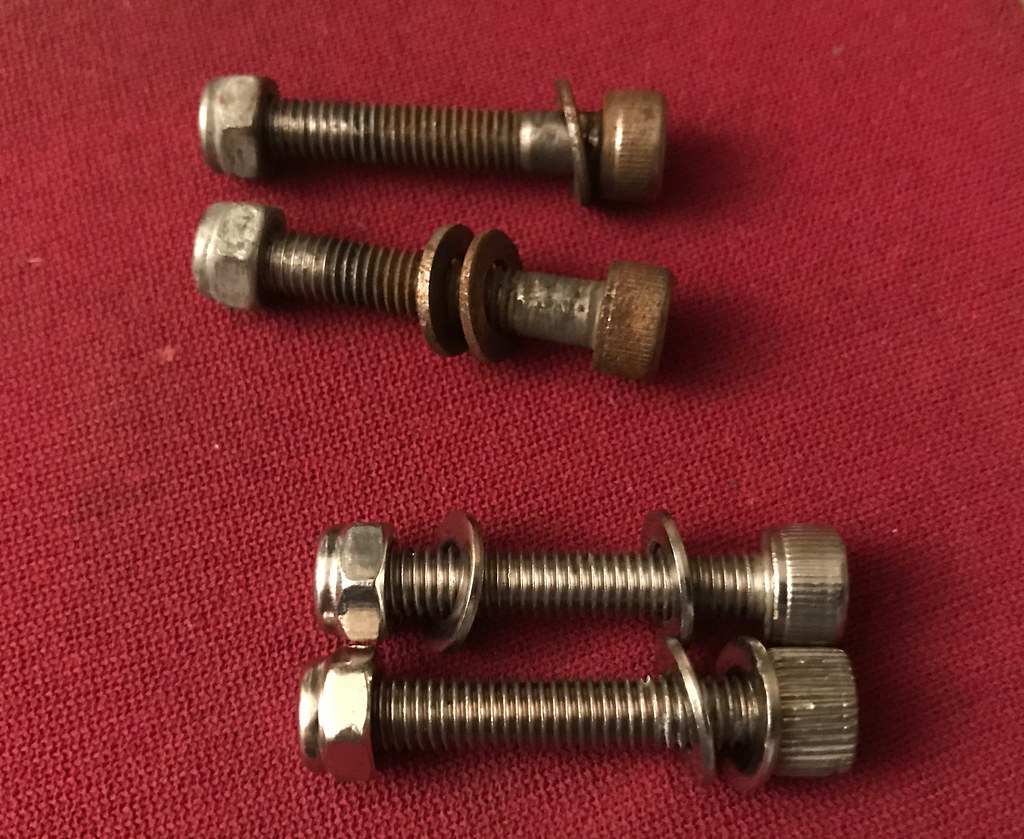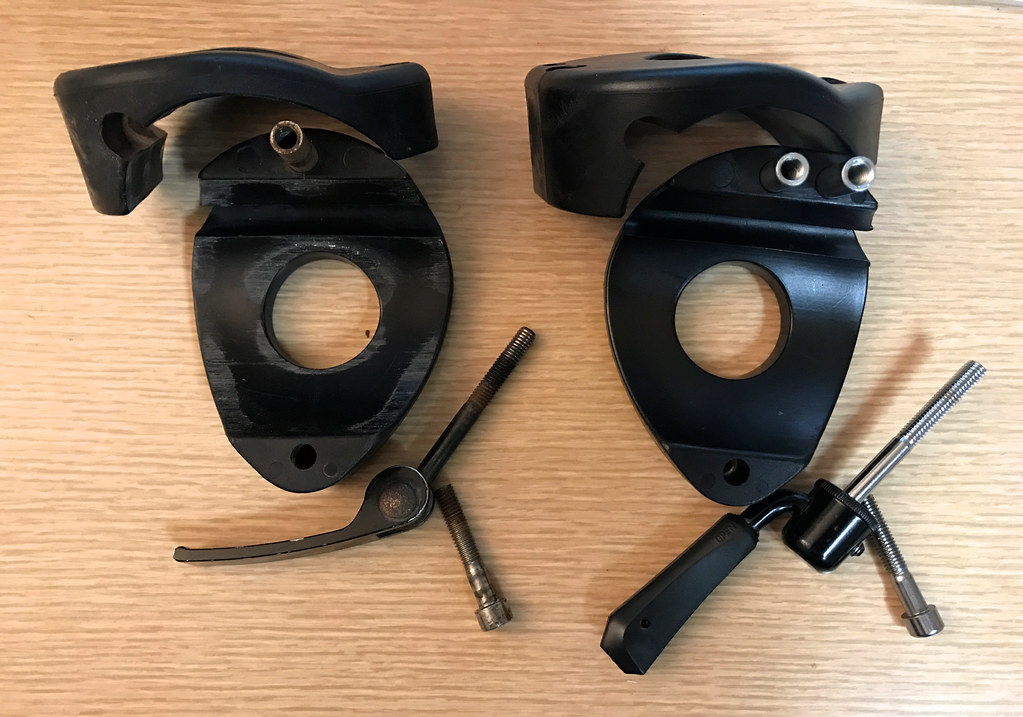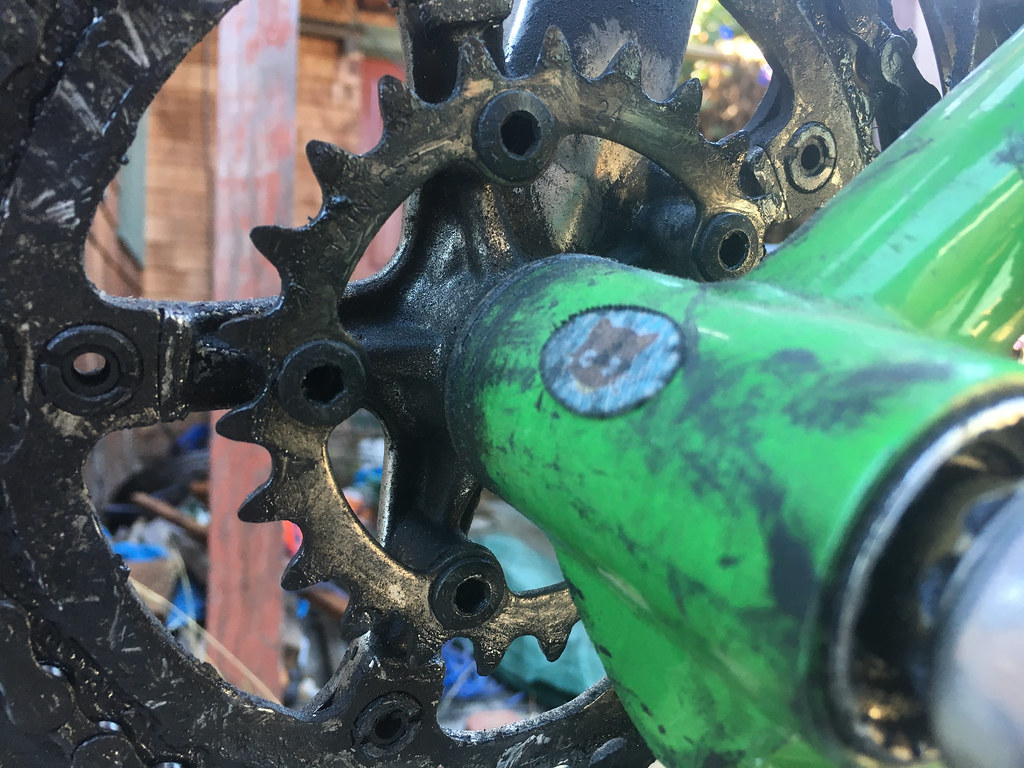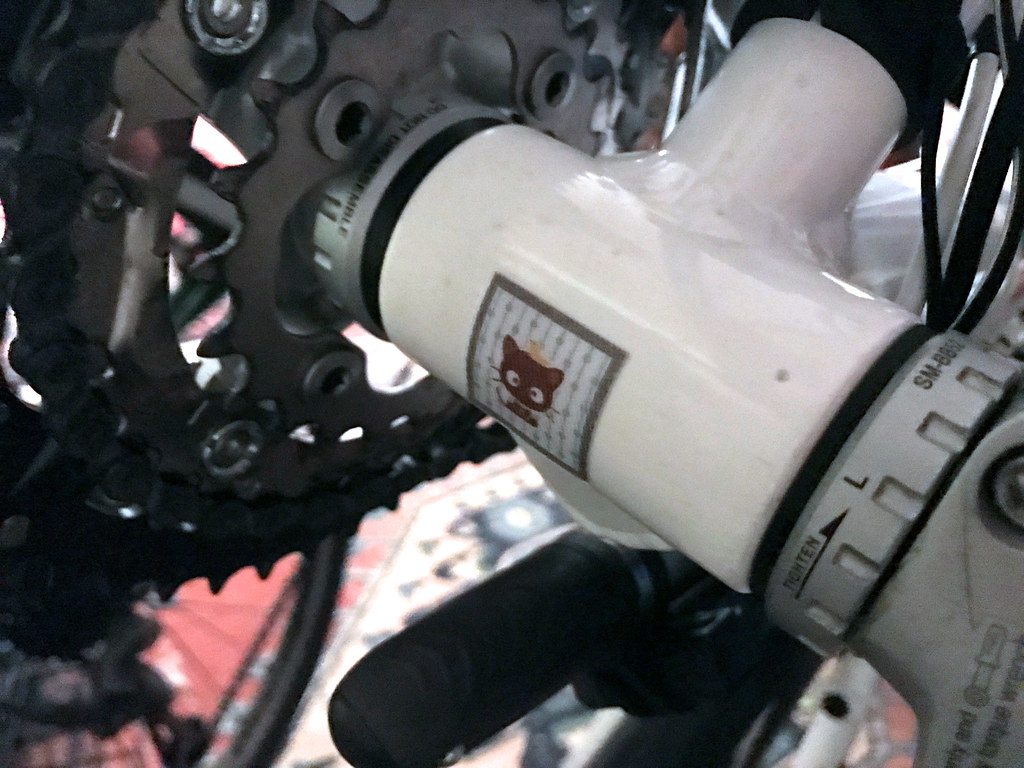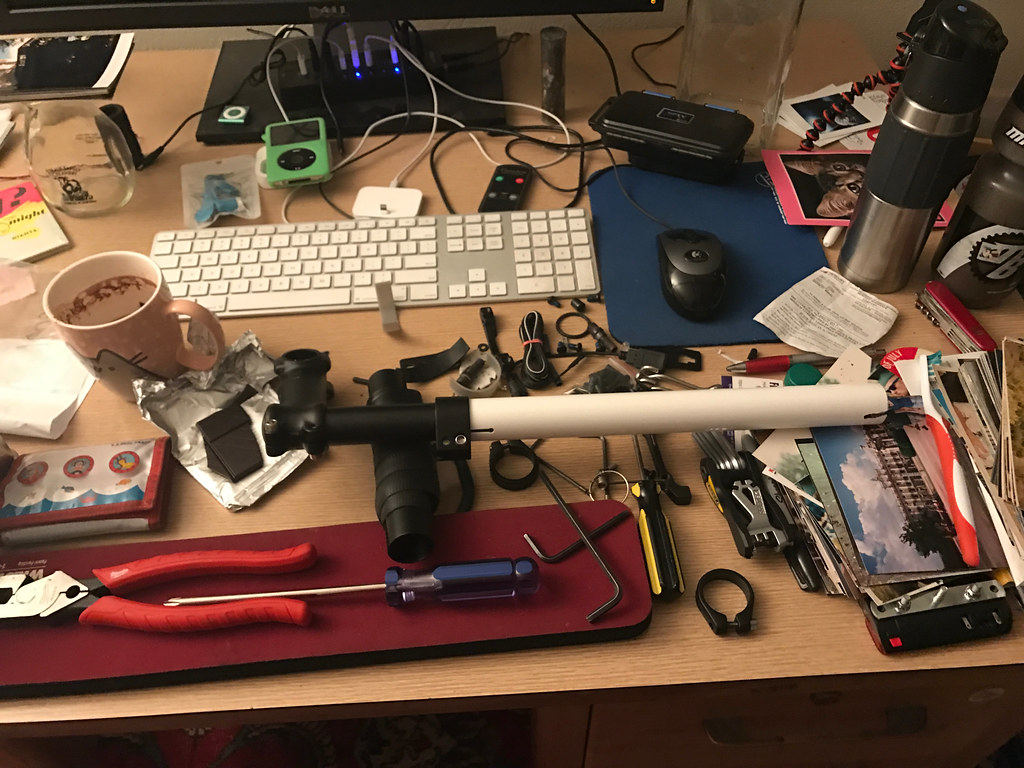Age, sickness, and the new normal
January 20, 2018 Filed under Inspiration, Stress
Just after Christmas I visited my father. I only had a handful of days before work started again, so the schedule was tight. I drove for nine straight hours into the Oregon mountains, through forbidding white walls of fog and lashings of rain, and spent the next two days with him and his wife in their cozy home, sharing stories and looking through photo albums, and tag-teaming crossword puzzles. He’s not as mobile as he used to be, but he sure can murder a crossword.
During the visit I realized that I had reached a strange milestone. Just a few weeks ago I celebrated my 42nd birthday, and now I was exactly half my father’s age. I pointed it out to him while I scanned the crossword clues.
“Congratulations,” he said dryly. “Feel any different?”
“Well, … starting to feel a bit old,” I said.
“Hah! Just you wait,” he said, and snatched the crossword back for another go.
Of course it was true. However old I felt, I had nothing on him. I could take all my aches and pains and multiply them by two – no, five – and throw in misbehaving bowels and Senior Moments, and I’m sure it still wouldn’t match the sheer annoyance of being 84. I would just have to wait. (And hope to make it that far.)
But on the 9-hour drive back out of Oregon, something happened that gave me a shot at real perspective: I came down with the flu. By the time I was back in Oakland I could tell it was going to be a really nasty one.
My body felt like it had been run over by a truck — one of those harvester trucks that creeps through an orchard in first gear while the farmers fill it with fruit. I could almost feel the way the tires had rolled up my chest, and pushed every joint of my body into the ground. I kept thinking that a few hours rest would make it stop, and I kept being wrong. Go for a bicycle ride? Forget it. Do a load of laundry? Forget it. Eat a hard-boiled egg and go lie down? Okay, let’s give that a try – but no promises.
(The most I managed to eat in a day was half a bowl of noodle soup. I set it down on the counter and wandered off, and the ants got the other half.)

I needed hot water bottles to stay warm, and it took every ounce of my concentration to avoid burning myself with the tea kettle. The act of filling them was usually so exhausting that all I could do afterwards was go back to bed, where I would sleep for two or three hours at a time and make hideous patches of sweat on the mattress. The week passed in a myopic, pointless haze. I might have felt depressed over the waste of time, if the feeling could ever get strong enough to displace the massive indifference that filled me like sticky tar in a railroad tie. Every ambition beyond mere existence was gone. In a way that was a blessing because if I tried to do anything ambitious, I’d probably cause an accident.
Partway through this ordeal, while laying semi-comatose in the bathtub, an idea occurred to me that was so alarming I had to say it out loud to the empty room just to get some distance from it:
“What if this is normal?”
What if the ambitious, lucid person I remembered being a week ago was just a shell, and I got so sick that it broke? What if I don’t just magically get that part of my personality back when I’m feeling better, and instead it’s in little pieces that I’ll never find? What if my brain’s been permanently cooked by fever, and my chance to do anything complicated with it is gone?
I felt panic, but even that feeling was weak. I couldn’t manage a strong feeling of any kind. My heart was already racing just from disease, so no change there. But as I shambled around the house, slowly recovering, the idea kept jumping out at me. My feeling of alarm grew in parallel to my recovering strength, and became a kind of motivation. “If I’m ever going to do big things,” I told myself, “I better do them while I have the ability – and the desire. I just hope I get them back…”
It was sobering to know I could so easily lose the ability. It was appalling to know that I could also lose the desire. … Not just for specific things, but for everything. Take my current state of health, and instead of corrupting it with the flu, corrupt it with time instead; add ten or twenty years … Where’s that line, between attempting something really ambitious and surviving it, and screwing it up and freezing to death over some dumb mistake or losing concentration at the wrong moment and getting mangled in a ditch? How long before I put a huge plan together and then have to tell myself, “No, I better just stay home,” and how long before that becomes my preference anyway?
I don’t want to wait and see.
As I worked on my recovery – cleaning the house, washing my sweaty laundry, hocking up the remains of the flu – I tried to reset my perspective.
42 isn’t old age. Well, it isn’t these days, at least. If I were living in 19th-century England, I’d probably be dead and buried by now, and have several sets of grandkids scratching around in the fields, but in this modern world I can probably go another 42 years, and retire to a cozy house in Oregon sometime in the middle of the century if that’s what appeals to me.
No, I can’t be in tip-top physical shape any more, but how much does that really matter? With the passage of time I’ve been exchanging that physical ability for improvisational skill and situational awareness. My position in this modern world depends on knowledge and connections – things older people accumulate – rather than my ability to dig trenches and chop trees all day. Plus, I’m better at distinguishing between stuff that will permanently injure me and stuff that will just be annoying. And I’m a lot less afraid of dealing with strangers.
Yes, I can do things. I just need the will.
My little pep-talk to myself dropped into the background as my flu symptoms vanished, and I was grateful to see my sense of ambition return. Old is definitely a state of mind, and I felt very lucky to leave that state behind. Maybe I’ll end up there some day just from sheer wear and tear. But dammit, not yet!!

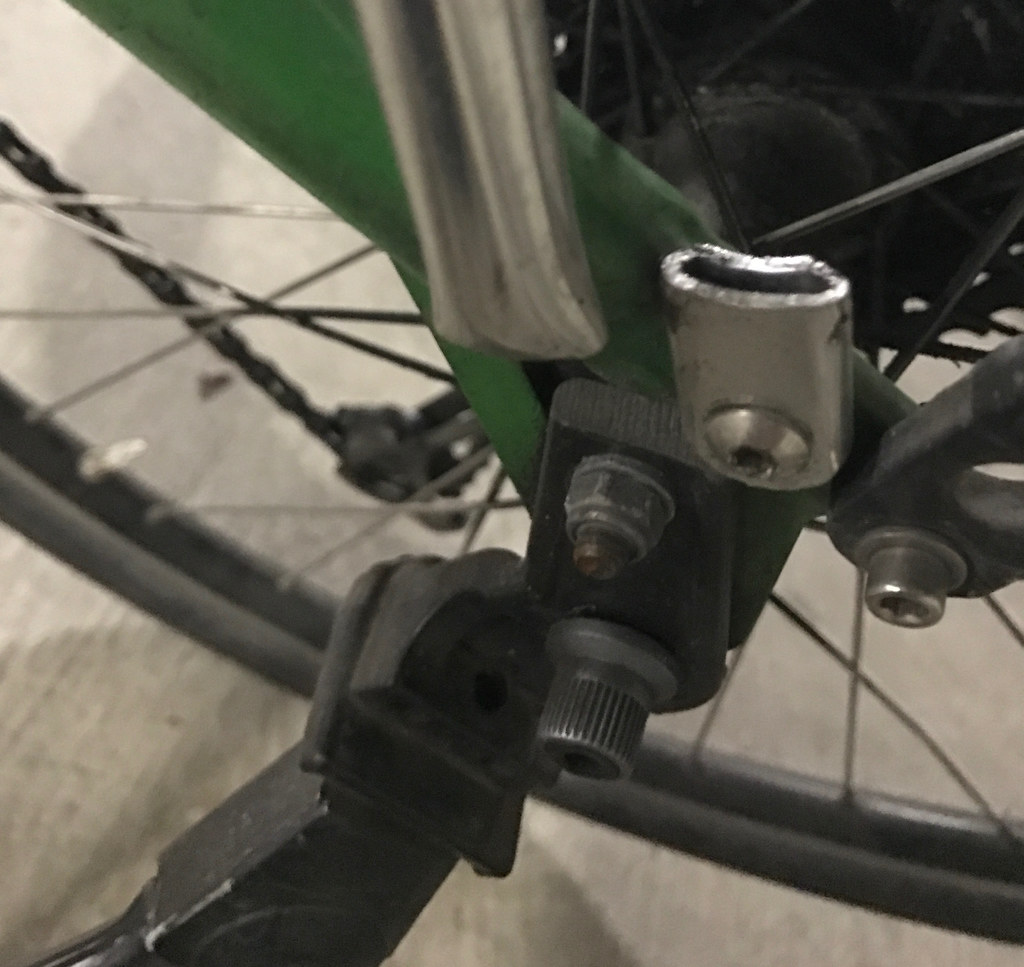

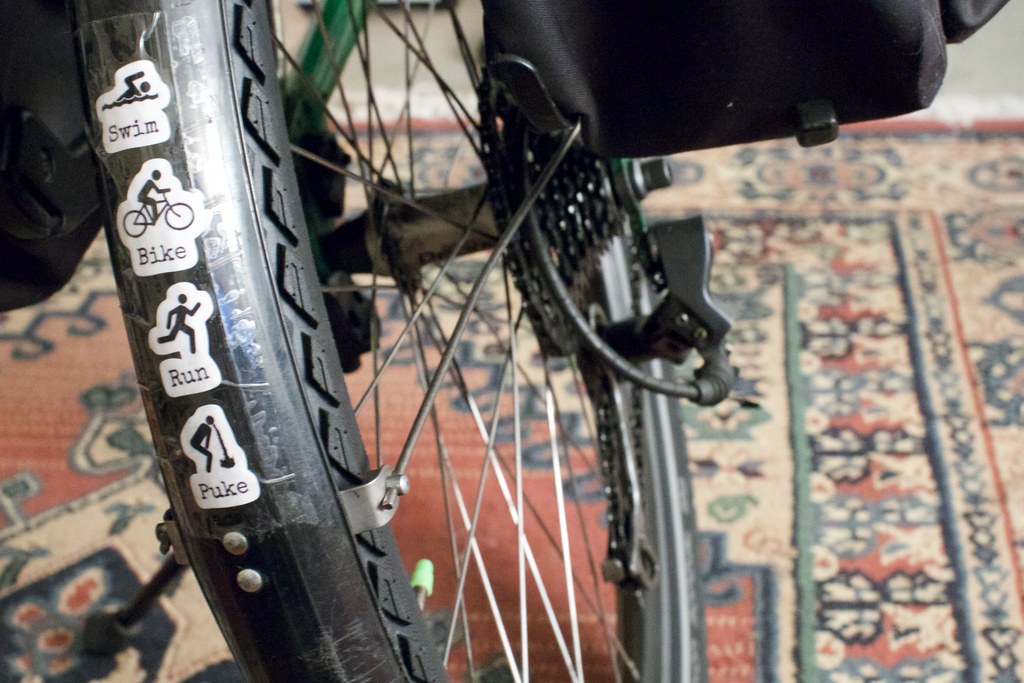
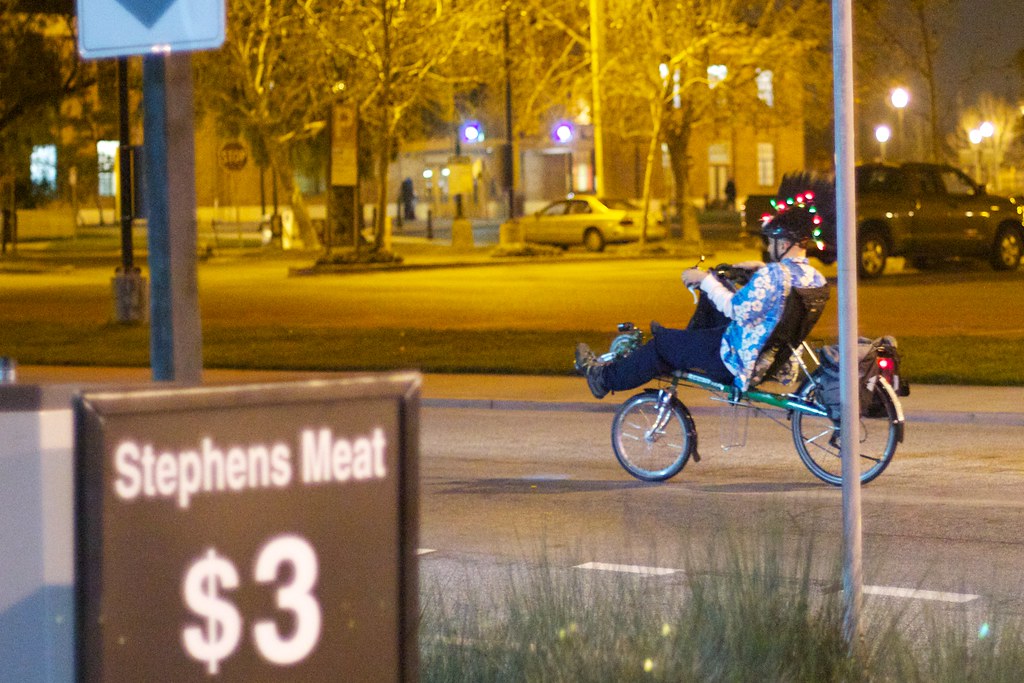
 Did someone just say something stupid? Now it’s here on your screen, and you have a tiny chance of saying something back to the author. How dare they say something so stupid where you, and others, can go read it. It might reach other people – not the stupid author, not you, not your fellow angry commenters, but some potential other third party that is gullible or equally stupid – and reinforce their stupidity. You must stop it! You have to drown it out in recrimination and mockery or sarcastic politeness! Quick, the chance to strike a blow against some stupid words that are on your screen is passing with every second, as the replies stack up and the crowd grows. Swing your fist before the target is obscured beneath other fists!
Did someone just say something stupid? Now it’s here on your screen, and you have a tiny chance of saying something back to the author. How dare they say something so stupid where you, and others, can go read it. It might reach other people – not the stupid author, not you, not your fellow angry commenters, but some potential other third party that is gullible or equally stupid – and reinforce their stupidity. You must stop it! You have to drown it out in recrimination and mockery or sarcastic politeness! Quick, the chance to strike a blow against some stupid words that are on your screen is passing with every second, as the replies stack up and the crowd grows. Swing your fist before the target is obscured beneath other fists! He always, always deserves it – not just the snarky ripostes, but the insults, the crank calls, the petitions for firing and destitution, the fraud and vandalism and trespassing. And hey – you didn’t want it to go that far, you just left a comment, and passed it on. … Which is exactly how and why it came to the attention of the worst actors in the mob.
He always, always deserves it – not just the snarky ripostes, but the insults, the crank calls, the petitions for firing and destitution, the fraud and vandalism and trespassing. And hey – you didn’t want it to go that far, you just left a comment, and passed it on. … Which is exactly how and why it came to the attention of the worst actors in the mob. Remember the conspiracy theorists on the liberal fringe ten years ago, who liked to scream “wake up, sheeple”? Well there’s no conspiracy required here. Just the extension of marketing tactics into social networking technology. We’re all wide awake; our only failure is in failing to understand that our online activity is now subject to such heavy filtering and interference that our political arguments and virulent “public” shamings are almost entirely self-referential, like yelling “booo, hiss” at the rich oligarch on a movie screen after we’ve wordlessly paid 15 bucks to get inside the theatre. In our enthusiasm for what’s on the screen, we forget that everyone around us is already a customer, viewing something constructed by others to gather an audience: Rage is cathartic. You’ll pay for catharsis, and the net is designed to deliver.
Remember the conspiracy theorists on the liberal fringe ten years ago, who liked to scream “wake up, sheeple”? Well there’s no conspiracy required here. Just the extension of marketing tactics into social networking technology. We’re all wide awake; our only failure is in failing to understand that our online activity is now subject to such heavy filtering and interference that our political arguments and virulent “public” shamings are almost entirely self-referential, like yelling “booo, hiss” at the rich oligarch on a movie screen after we’ve wordlessly paid 15 bucks to get inside the theatre. In our enthusiasm for what’s on the screen, we forget that everyone around us is already a customer, viewing something constructed by others to gather an audience: Rage is cathartic. You’ll pay for catharsis, and the net is designed to deliver. When you’re online hunting for a product, presenting the right search result to you is worth a nice chunk of money. But when you’re online because you’re following a compulsion to “make your voice heard”, that’s a whole lot more time online, during which you can be distracted by anything – because you’re not looking for anything in particular, except validation. An ad thrown at you just as you’re finding that validation is worth a lot to an advertiser. How many times have you finished making your comment, or airing your fetid complaint, or satisfying your righteousness, and sent your eyes wandering around the screen for the next thing to explore, while those happy chemicals are still percolating in your brain?
When you’re online hunting for a product, presenting the right search result to you is worth a nice chunk of money. But when you’re online because you’re following a compulsion to “make your voice heard”, that’s a whole lot more time online, during which you can be distracted by anything – because you’re not looking for anything in particular, except validation. An ad thrown at you just as you’re finding that validation is worth a lot to an advertiser. How many times have you finished making your comment, or airing your fetid complaint, or satisfying your righteousness, and sent your eyes wandering around the screen for the next thing to explore, while those happy chemicals are still percolating in your brain?